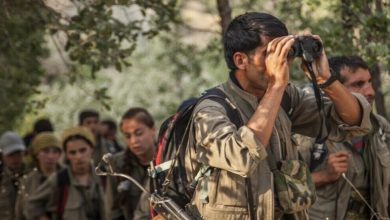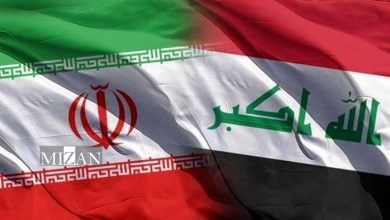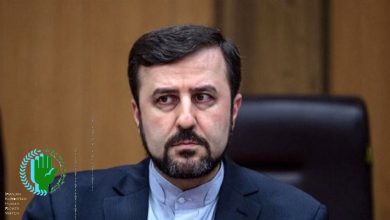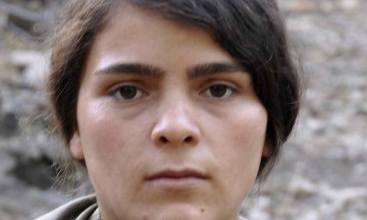Bahman Zare’ Jurani was born in Urmia in 1988 and only completed the second grade of elementary school. Before joining the terrorist group PJAK, he worked as a construction worker alongside his older brother. According to an interview with Bahman’s brother by the Iranian Kurdistan Human Rights Watch, none of the family members had any interest in political-military activities, and no one had previously joined groups like PJAK or the PKK. The family still doesn’t know why Bahman chose such a path.
Leaving Home and Disappearing
In 2010, while his mother was at home, Bahman Zare’ took 5,000 Tomans and left the house to hang out with friends. He never returned. When his family realized his absence was prolonged, they went to the police and hospitals but found no trace of him.
Discovering the News of His Death on PKK Television
After nearly a year and a half of silence, the Zare’ family learned through a TV channel affiliated with the PKK/PJAK group that Bahman had been killed in Turkey and was a member of the group. However, their weak economic situation prevented them from pursuing his body or burial site. To this day, no one knows why, how, or where he was killed, or where he is buried.
The Account of Majid Zare’, Bahman’s Older Brother
“We Weren’t Political”
“I am Majid Zare’, Bahman Zare’ Jurani’s older brother. Our family is from the old neighborhoods of Urmia, and we worked all day to make ends meet. After our father passed away, everything became harder for us. My mother grew old and was left alone, and we, her children, had to fend for ourselves.
I worked in construction, and Bahman was by my side from childhood. Even though he had only finished the second grade, he was very smart and clever. He always used to say, ‘I don’t want school; I want to become a man.’ We were never interested in politics—not me, not Bahman, and not anyone else in the family. When the TV showed political news, we didn’t pay attention. For us, economic and livelihood issues were more important; we worried about rent and the price of rice, not factions and groups in the mountains.
Bahman’s Simple and Hardworking Character
Bahman was a humorous and kind child who treated everyone well and wasn’t one to cause trouble and spent most of his time either playing soccer with the neighborhood kids or working with me.
He loved construction and was always working and learning and would sweat and say that one day he would open his own shop. He wasn’t looking for easy money or slogans, and he never talked about groups or parties. Even when the news was on TV, he had no patience for it and just went on with his simple life. Our family’s financial situation didn’t allow us to think about political activity.
The Day He Never Returned
In 2010, it was an ordinary day. I was at work, and my mother was at home. Bahman came and said he wanted to go out with his friends. He took 5,000 Tomans from our mother, an amount that was enough for ice cream and lunch. Our mother said, ‘Okay, come back soon.’ But that ‘soon’ never came. Night fell, then the next day, but there was no news of Bahman.
First, we thought his phone was off. Then we went to his friends, but no one had seen him. We then went to the police, the hospital, and even the coroner’s office, but we couldn’t find any trace of him anywhere.
The TV Shock: Seeing Bahman’s Name and Photo
A year and a half later, we were still in complete ignorance. We had no calls, letters, or any sign from him. Every day, I would tell my mother that maybe we’d hear something today, but nothing ever happened.
One night, a Kurdish satellite channel was on, and they read the names of those killed in the PKK. I paid close attention and suddenly heard the name ‘Bahman Zare’ Jurani.’ I froze. A moment later, I saw his picture; it was him. I remembered his face and his gaze.
My mother, with tears, asked, ‘Majid, is that him?’ and I could only say, ‘It’s him…’
We learned that he was killed in Turkey and had been a member of the PKK. But it was hard to believe. How could our simple, uneducated Bahman pick up a gun and fight? A thousand thoughts ran through our minds.
Uncertainty about the Burial Place
I really wanted to follow up, but we didn’t have the means. We didn’t even have the money for the fare to the border. No institution or organization helped us—neither governmental nor international. We still don’t know where Bahman is buried. We even think that the picture on the TV might not have been the last one of him, and maybe he is still alive. This uncertainty falls on us like a hammer every single day.
The Impact of This Tragedy on the Family
Since Bahman left, we have died, too. We are alive, but we are dead. My mother is like a candle, melting little by little. At night, she talks to Bahman’s picture. Every day at work, I think of him and say to myself, ‘I wish he were by my side.’ No one dared to sympathize with us. Some people thought he wanted to go. But I say that if he went, he was deceived. He was a simple kid who made a mistake.
A Brother’s Final Message to Bahman
“My dear Bahman… my little brother… wherever you are, know that we never forgot you. If you left, you left with a heavy heart. But I know deep down you were homesick. I wish I could hear your voice one more time. If you have passed away, just let me know where you are so I can come to your grave and say: Forgive me for not being able to do anything for you.”






